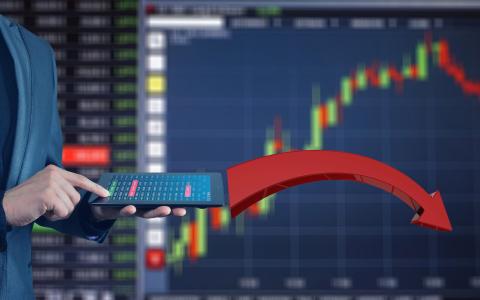
Prepare for a recession that will impact consumers, strain companies, and depress stock values, warned a seasoned economist.
"There is a very high probability of a recession," Nancy Lazar, Piper Sandler's chief global economist, shared in a recent WealthTrack interview.
Lazar, cofounder of Cornerstone Macro and ISI, pointed to the delayed effects of the Federal Reserve's interest-rate increases and tightening credit as likely triggers for an economic downturn.
"We believe this is a very risky economic environment," she explained. "When banks tighten lending standards and interest rates are high, a soft landing is unprecedented. It typically results in a hard landing."
Historically, recessions hit an average of 10 quarters after the Fed initiates a rate-hike cycle, but they have taken up to 16 quarters to materialize. The current cycle began in March 2022, so eight quarters have already passed.
Lazar highlighted several indicators of economic distress. She mentioned that 19 US states, representing 40% of the national GDP, have experienced at least a 0.5 percentage point rise in their average unemployment rates over three months.
Whenever such a significant increase in joblessness has been recorded in the past, it has been followed by a nationwide recession, she noted.
Government data shows unemployment rose in 30 states over the 12 months through April. The national unemployment rate was 3.9%, up from 3.4% in April 2023.
Several sectors of the economy are "really, really struggling," Lazar continued. She referenced the NFIB survey of small business sentiment, which is "deep in recession territory" and currently worse than during the 1990 and 2001 recessions.
Lower-income consumers are grappling with stagnant wage growth and high prices, Lazar said. Their credit card balances are "through the roof," and subprime auto loan delinquencies have recently reached a record high, highlighting their financial difficulties.
'Tipping Point'
In stark contrast, wealthy individuals are benefiting from near-record highs in their stock portfolios and home values. They've managed to keep their low-interest mortgages and avoid the impact of higher rates due to fewer high-interest loans, Lazar observed.
"We have a very bifurcated, unstable economy," she added.
Middle-income consumers are "at the tipping point," Lazar said, warning that if unemployment rises above 4%, they could face job losses and significant credit card debt.
Given these warning signs, she predicted that corporate revenues would weaken by the last quarter of this year as consumers cut back spending and interest rates take their toll, leading to layoffs and impacting middle-income households.
Stash of Cash
Lazar also cautioned that an economic downturn would negatively affect stocks.
"If we have a recession, inflation will slow," she said. "And if inflation slows, profit margins will be squeezed, posing risks for the stock market."
If inflation remains persistent and the Fed is forced to keep rates high, this could further increase unemployment and exacerbate economic pain, Lazar said.
"A little stash of cash may not be a bad idea right now," she advised. "I'm not sure I've ever said that in my 40-year career."



